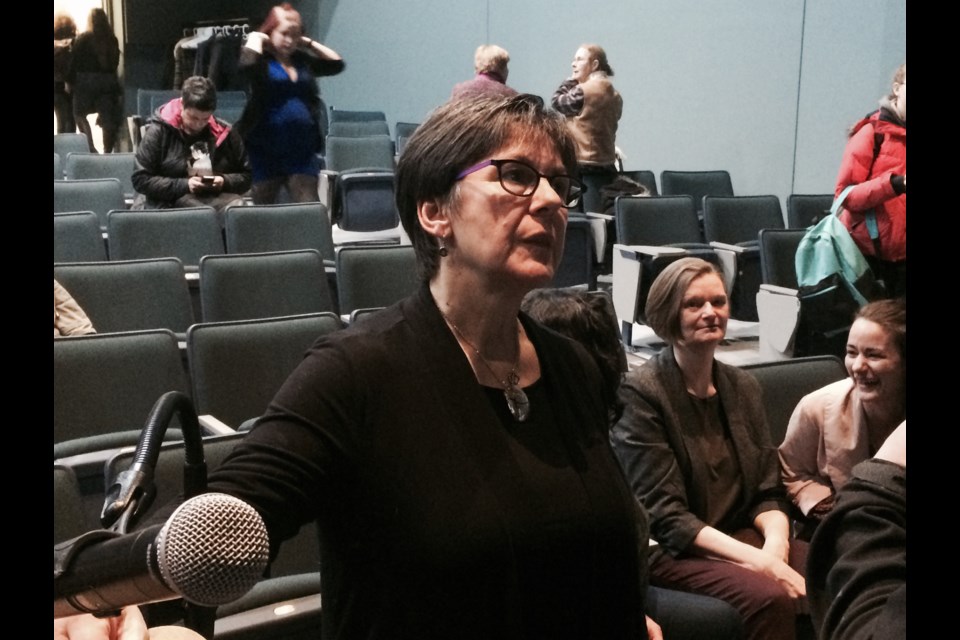Senator Kim Pate was the keynote speaker at Nipissing University Wednesday night, as part of a series marking International Women's Week, organized by Nipissing's Gender Equality and Social Justice Department.
Pate was appointed to the Senate in the fall of 2016. Prior to that, she served as the Executive Director of the Canadian Association of Elizabeth Fry Societies. She has over 30 years experience advocating on behalf of people who have found their way into Canada's legal and penal system.
Her presentation focused on Why Women are the Fastest Growing Prison Population and Why We Should Care.
"Women are the fastest growing population in large part because of the systemic inequalities women experience.They're more likely to be poor, they're more likely to have experienced violence, they're more likely to not have had that violence dealt with, and they're more likely as a result, to have used drugs or alcohol, or develop mental health issues as a result of that," explained Pate.
"And those are all the groups that are over-represented in prison. So when we don't address those needs at the outset, and we don't provide the resources in the community, then we leave them to the only system that can't say no to them, and that is our prison system. So that's why we see so many people who are homeless, so many people who are poor, so many people who have experienced violence, and so many who then are sometimes anesthetizing themselves with drugs or alcohol to negotiate poverty or those experiences."
Pate says they are seeing increased numbers of people with mental health issues because there is a lack of resources in the community to address their needs.
"Corrections Canada depending on what data they use will say anywhere from 30 to 90 percent of women in prison have mental health issues. Everything from depression, to more major mental health issues. And between 36 and 39 percent of women in prison are Indigenous, and 43% of girls in custody are Indigenous," said Pate.
"A correctional investigator did some research that showed that the number of Indigenous women was increasing at a higher rate than women overall, but the numbers of women are going up. Whereas the number of men has been going down in custody, and the crime rates have been going down. So it basically underscores that this is really about inequality, as opposed to dangerous or public safety issues," said Pate.
"We need to actually be making policy decisions to invest in equality, and invest in these things starting with housing, educational support, social services and we can do things like expand the basic income and create guaranteed livable incomes. All of those sorts of things are achievable, and we could reallocate resources we are now spending to prison people, at 100's of dollars a day minimum, and instead, be investing those in the community. So it benefits not just people that are in prison now, but more importantly, the community as a whole."
The Senator went on to say there is a large mental and social cost associated with being incarcerated.
"We know the majority of women in prison are mothers and that many of them have more than one child. And we know those children end up in the care of the state as well. We're talking about human and social costs," said Pate.
"We can invest resources in different ways that would benefit everybody, not just those who are currently in prison, but all of us. And those are policy decisions that we have a stake in, and we also have a responsibility to make those changes".



